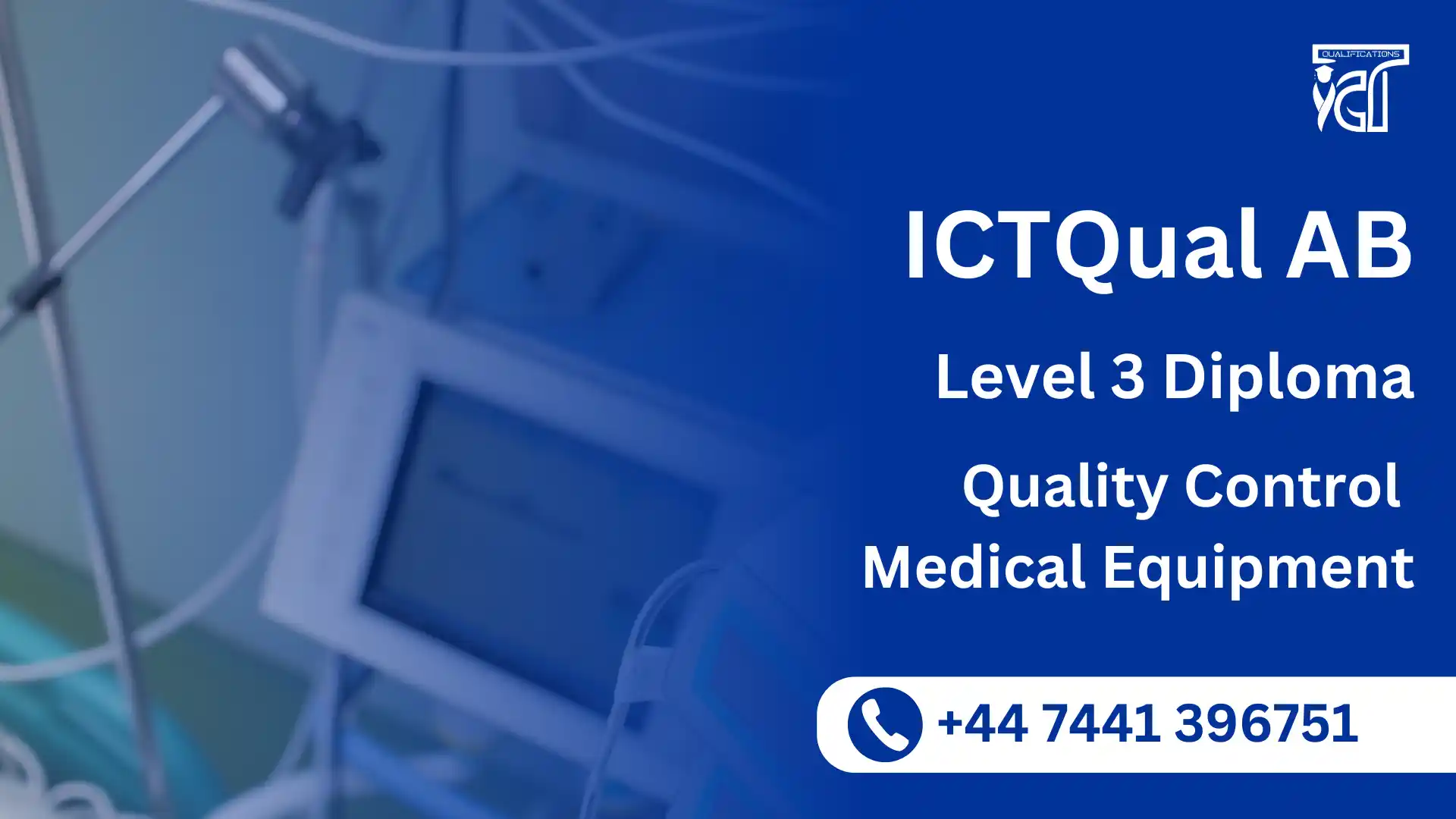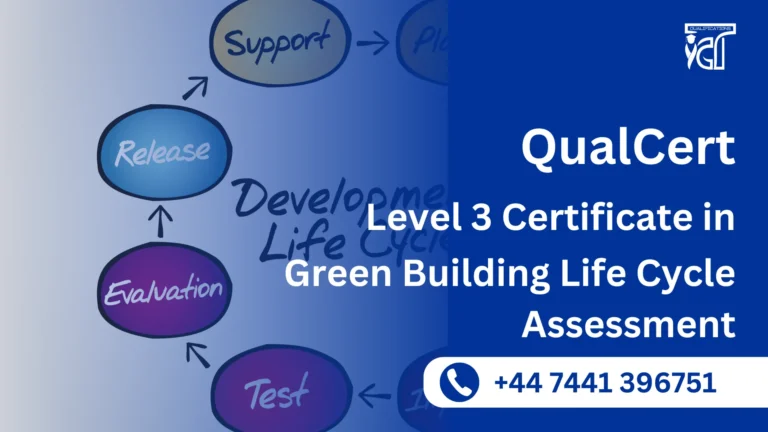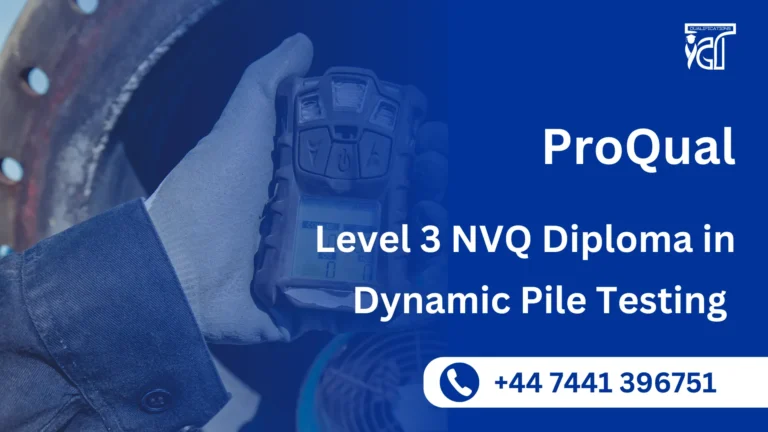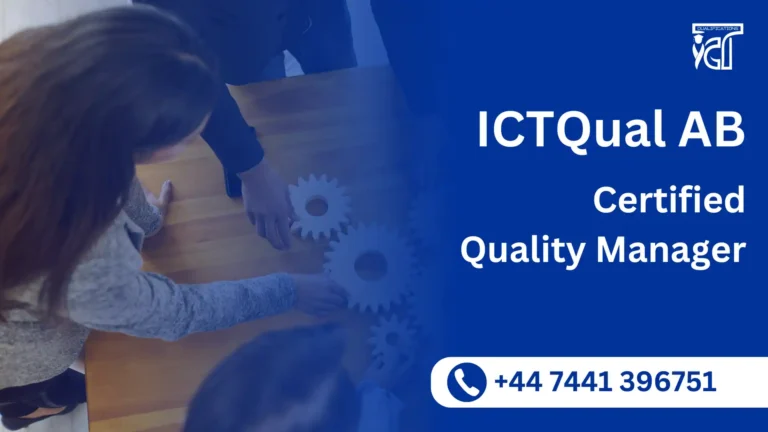The ICTQual AB Level 3 Diploma in Quality Control – Medical Equipment is a comprehensive qualification designed to develop the technical competence and regulatory understanding required for ensuring the quality, safety, and compliance of medical devices and healthcare equipment. As the demand for reliable and well-regulated medical equipment grows globally, this diploma provides learners with the essential skills to contribute effectively to the manufacturing, inspection, and maintenance processes in the healthcare technology sector.
This course covers a wide range of quality control areas, including equipment testing, calibration, validation, defect analysis, documentation, and adherence to international standards such as ISO 13485, FDA guidelines, and CE compliance. Learners are trained to identify non-conformities, implement corrective actions, and maintain traceable documentation in accordance with health and safety requirements. The curriculum combines both theoretical instruction and practical knowledge, preparing learners to handle real-world quality control challenges in hospital supply chains, diagnostic labs, production facilities, and service centers.
Ideal for aspiring quality professionals, technicians, and those already working with medical equipment, the diploma serves as both a career starter and a skills enhancement opportunity. It empowers learners with the tools to ensure high standards in healthcare technology, minimize risks to patients, and support the integrity of life-saving devices. Whether you aim to enter the quality assurance workforce or advance in a technical healthcare role, this diploma builds a strong foundation for long-term success in the industry.
ICTQual AB Level 3 Diploma in Quality Control Medical Equipment
This qualification, the ICTQual AB Level 3 Diploma in Quality Control Medical Equipment, consists of 6 mandatory units.
- Fundamentals of Medical Equipment Quality Control
- Inspection, Testing, and Maintenance Procedures
- Regulatory Compliance and Documentation in Healthcare Technology
- Introduction to Biomedical Instrumentation and Calibration
- Quality Assurance Standards in Medical Devices
- Health and Safety Principles in Medical Equipment Handling
Learning Outcomes for the Study Units:
Fundamentals of Medical Equipment Quality Control
• Understand the purpose and principles of quality control in medical equipment
• Identify key types of medical devices and their operational requirements
• Explain how quality control contributes to patient safety and healthcare outcomes
• Describe basic quality assurance processes used in healthcare settings
Inspection, Testing, and Maintenance Procedures
• Apply standard inspection methods to assess the condition and performance of medical equipment
• Conduct basic testing procedures to verify functionality and compliance
• Perform routine maintenance to support long-term equipment reliability
• Record, interpret, and report test and maintenance findings accurately
Regulatory Compliance and Documentation in Healthcare Technology
• Identify major national and international regulations governing medical devices
• Understand the importance of accurate documentation in quality control processes
• Prepare compliance-related records, reports, and logs in accordance with healthcare standards
• Demonstrate procedures for incident and defect reporting within regulatory frameworks
Introduction to Biomedical Instrumentation and Calibration
• Understand the basic principles of biomedical instrumentation used in diagnostics and therapy
• Identify calibration requirements for different types of medical devices
• Perform basic calibration procedures using appropriate tools and techniques
• Evaluate the accuracy of readings and adjust instrumentation accordingly
Quality Assurance Standards in Medical Devices
• Recognise global quality assurance standards relevant to medical equipment
• Understand the structure and purpose of quality management systems in healthcare
• Apply quality control methods to maintain device performance within acceptable limits
• Participate in internal quality audits and continuous improvement processes
Health and Safety Principles in Medical Equipment Handling
• Understand the importance of health and safety in the handling and maintenance of medical equipment
• Identify common hazards and apply safety protocols to minimise risk
• Demonstrate safe practices when working with electrical, electronic, and mechanical components
• Follow infection control and waste disposal procedures in line with healthcare regulations
The ICTQual AB Level 3 Diploma in Quality Control – Medical Equipment offers a range of professional, academic, and practical benefits for learners aiming to build a career in healthcare technology, quality assurance, or medical device compliance. The course is designed to ensure learners are well-prepared to meet the high safety and quality expectations within the medical equipment industry. Key benefits include:
- Comprehensive Understanding of Medical Equipment Quality Standards
Learners gain in-depth knowledge of global quality control practices, including ISO 13485, FDA requirements, CE marking, and other regulatory frameworks critical to ensuring safe and effective medical equipment use. - Career-Focused Skill Development
The course develops vital skills in equipment testing, calibration, risk assessment, defect detection, root cause analysis, and documentation, all of which are directly applicable in real-world roles within hospitals, laboratories, and manufacturing units. - Improved Employment Opportunities
Graduates are qualified for roles such as Quality Control Technician, QA Officer, Regulatory Compliance Assistant, or Medical Equipment Inspector in the healthcare and biomedical industries. - Practical and Industry-Relevant Training
Learners are introduced to the technical and operational standards required in medical equipment inspection and validation, giving them the confidence to handle quality procedures in high-stakes environments. - Pathway to Further Qualifications
This diploma lays a strong foundation for progression to higher-level programs in quality management, healthcare compliance, biomedical engineering, or Level 5 diplomas within the same specialization. - Increased Workplace Competency and Confidence
Graduates leave the program with the competence to uphold high-quality standards, meet regulatory expectations, and support patient safety through precise equipment management. - Global Industry Alignment
With a curriculum aligned to international best practices, learners are prepared to work in both local and global medical technology environments, enhancing their mobility and career flexibility.
This diploma ensures learners are not only job-ready but also capable of making meaningful contributions to the healthcare system through rigorous quality control of life-saving medical equipment.
The ICTQual AB Level 3 Diploma in Quality Control – Medical Equipment is designed for individuals who have a strong sense of responsibility, attention to detail, and a desire to ensure the safety and functionality of healthcare technologies. This course is ideal for learners who are passionate about quality assurance and want to play a critical role in maintaining high standards in medical device performance and compliance.
The ideal learner for this diploma includes:
- Aspiring Quality Control Professionals who wish to enter the medical device or healthcare equipment industry with a solid foundation in quality control principles and industry-specific knowledge.
- Technicians and Support Staff working in hospitals, diagnostic labs, or medical equipment maintenance who want to upgrade their quality assurance skills and gain formal recognition.
- Science and Engineering Graduates seeking a career in biomedical equipment, regulatory compliance, or healthcare technology inspection.
- Individuals with a Technical or Healthcare Background who are looking to specialize in the quality management aspect of medical equipment and pursue a more structured career path.
- Career Switchers from manufacturing, electronics, or healthcare support roles who want to transition into a high-demand field with long-term job prospects.
This diploma is suited for learners who are analytical, safety-oriented, and committed to contributing to patient well-being through effective quality control of life-saving equipment. It is also ideal for those seeking internationally aligned skills that are relevant across a range of healthcare and medical device settings.
Entry Requirements
Register Now
Qualification Process
Qualification Process for the ICTQual AB Level 3 Diploma in Quality Control Medical Equipment
- Self-Assessment:
Begin by evaluating your eligibility to ensure you meet the qualification requirements, including work experience, knowledge, and language proficiency. - Registration:
Complete your registration by submitting the required documents, including a scanned copy of a valid ID, and paying the registration fee. - Induction:
An assessor will conduct an induction to confirm your eligibility for the course and explain the evidence requirements. If you do not meet the criteria, your registration will be cancelled, and the fee will be refunded. - Assignments & Evidence Submission:
Provide all assignments and the necessary evidence based on the assessment criteria outlined in the course. If you are unsure of the required evidence, consult with the assessor for guidance on the type and nature of evidence needed. - Feedback and Revision:
The assessor will review your submitted evidence and provide feedback. Evidence that meets the criteria will be marked as “Criteria Met,” while any gaps will be identified. You will be asked to revise and resubmit if needed. - Competence Evidence:
Submit final evidence demonstrating that all learning outcomes have been met. This evidence will be marked as “Criteria Met” by the assessor once it is satisfactory. - Internal Quality Assurance (IQA):
The Internal Quality Assurance Verifier (IQA) will review your evidence to ensure consistency, quality, and compliance with standards. - External Verification:
The IQA will submit your portfolio to ICTQUAL AB External Quality Assurance Verifiers (EQA) for final confirmation. The EQA may contact you directly to verify the authenticity of your evidence. - Certification:
Upon successful completion of all checks, ICTQUAL AB will issue your official certificate, confirming that you have attained the ICTQual AB Level 3 Diploma in Quality Control Medical Equipment.







